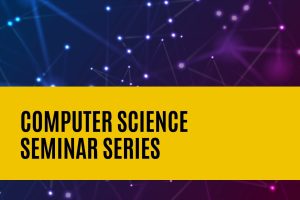
Refreshments are available starting at 10:30 a.m. The seminar will begin at 10:45 a.m.
Abstract
Massive efforts are under way to develop and adapt generative AI to solve any and all inferential and design tasks across engineering and science disciplines. Framing or reframing problems in terms of distributional modeling can bring a number of benefits, but also comes with substantial technical and statistical challenges. Tommi S. Jaakkola’s work has focused on advancing machine learning methods for controlled generation of complex objects, ranging from molecular interactions (e.g., docking) and 3D structures to new materials tailored to exhibit desirable characteristics such as carbon capture. In this talk, Jaakkola will cover a few research vignettes along with their specific challenges, focusing on diffusion and flow models that surpass traditional or alternative approaches to docking, protein design, or conformational ensembles. Time permitting, he will highlight general challenges and opportunities in this area.
Speaker Biography
Tommi S. Jaakkola is the Thomas Siebel Professor of Electrical Engineering and Computer Science in the Massachusetts Institute of Technology’s Department of Electrical Engineering and Computer Science and the MIT Institute for Data, Systems, and Society; he is also an investigator at the MIT Computer Science and Artificial Intelligence Laboratory. He is a fellow of the Association for the Advancement of Artificial Intelligence with many awards for his publications. His research covers how machines can learn, generate, or control and do so at scale in an efficient, principled, and interpretable manner, from foundational theory to modern design challenges. Over the past several years, Jaakkola’s applied work has been focused on molecular modeling and design.